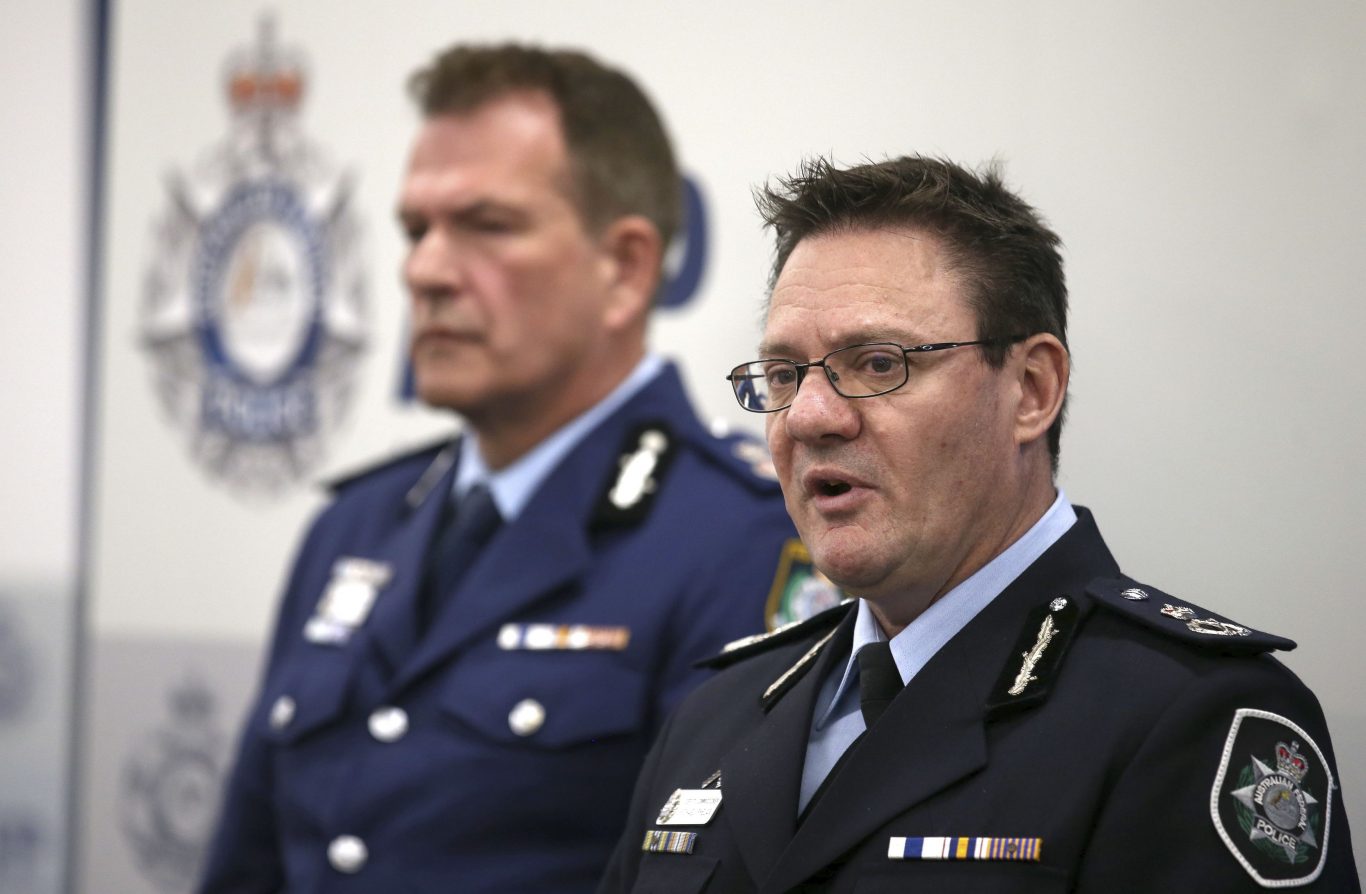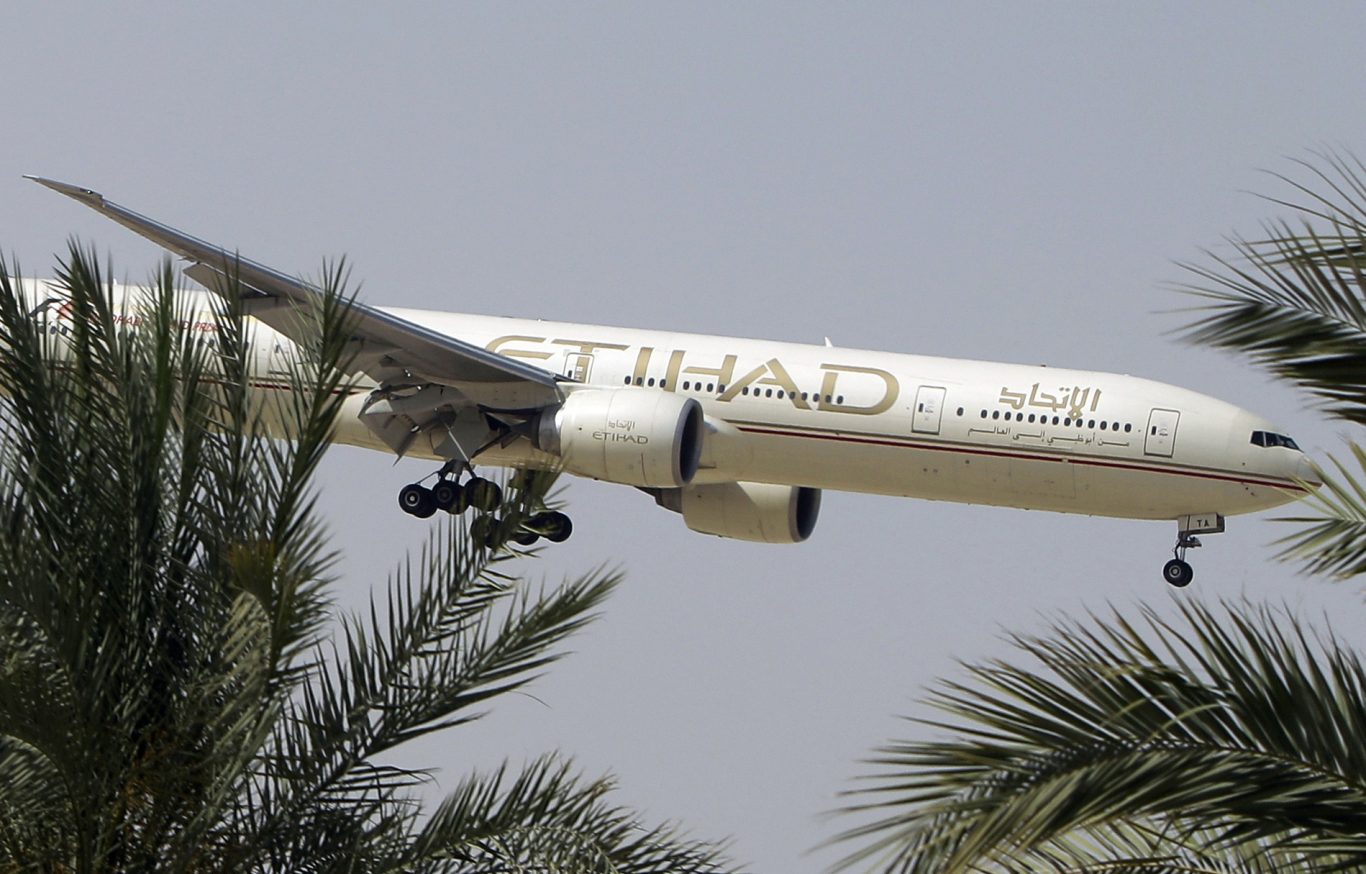
Two men tried to smuggle an improvised explosive device on to a plane at an Australian airport last month in a plot directed by Islamic State, police have said.
The men, who are now facing terrorism charges, targeted an Etihad Airways flight out of Sydney airport, Australian Federal Police Deputy Commissioner Michael Phelan told reporters.
One of the men, a 49-year-old from Sydney, brought the device to the airport on July 15 in a piece of luggage that he had asked his brother to take with him on the flight – but he had not told his brother the bag contained explosives.
AFP and NSWP discuss the Two sydney men charged over alleged terrorist acts https://t.co/wgi6mDvFhx
— AFP (@AusFedPolice) August 3, 2017
But for reasons still unclear, the bag never got past the check-in counter. Instead, Mr Phelan said, the 49-year-old man left the airport with the bag, and his brother continued on to the flight without it.
“This is one of the most sophisticated plots that has ever been attempted on Australian soil,” Mr Phelan said.
“If it hadn’t been for the great work of our intelligence agencies and law enforcement over a very quick period of time, then we could well have a catastrophic event in this country.”
The details he provided on Friday are the first that officials have released since four men were arrested in a series of raids in Sydney last weekend.
BREAKING: UPDATE – Two Sydney men charged over planned terrorist acts. https://t.co/t8MgHloKXi
— AFP (@AusFedPolice) August 3, 2017
Khaled Khayat, 49, and Mahmoud Khayat, 32, have been charged with two counts of planning a terrorist act. A third man remains in custody, while a fourth was released without charge.
Khaled Khayat’s brother has not been charged in connection with the plot, because police believe he had no idea the bag contained explosives, Mr Phelan said.
Lawyer Michael Coroneos appeared on behalf of Khaled and Mahmoud Khayat at a brief court hearing on Friday. They were refused bail and the case was adjourned until November 14. Police have not detailed the men’s relationship.
 Australian Federal Police Deputy Commissioner Michael Phelan (Rick Rycroft/AP)
Australian Federal Police Deputy Commissioner Michael Phelan (Rick Rycroft/AP)
The components for the device, including what Mr Phelan described as a “military-grade explosive,” were sent by a senior Islamic State member to the men in Sydney via air cargo from Turkey.
An Islamic State commander then instructed the two men who have been charged on how to assemble the device, which police have since recovered, Mr Phelan said.
After the July 15 bid failed, the men changed tactics and were in the early stages of devising a chemical dispersion device, which they hoped could release highly toxic hydrogen sulphide, he said.
 Etihad says it is working with Australian police in its investigation (Kamran Jebreili/AP)
Etihad says it is working with Australian police in its investigation (Kamran Jebreili/AP)
“Hydrogen sulphide is very difficult to make, so I want to make it quite clear that while it may be a hypothetical plot, we were a long way from having a functional device,” Mr Phelan said.
Police had no idea either of the plans were in the works until they received a tip-off through intelligence agencies on July 26, Mr Phelan said. They arrested the men on July 29.
The allegation that Islamic State was able to ship explosives to Australia undetected was troubling, police admitted.
One of the men charged was put in touch with the Islamic State commander police believe directed the plot in April, Mr Phelan said. He declined to release the Islamic State commander’s name.


Why are you making commenting on The Herald only available to subscribers?
It should have been a safe space for informed debate, somewhere for readers to discuss issues around the biggest stories of the day, but all too often the below the line comments on most websites have become bogged down by off-topic discussions and abuse.
heraldscotland.com is tackling this problem by allowing only subscribers to comment.
We are doing this to improve the experience for our loyal readers and we believe it will reduce the ability of trolls and troublemakers, who occasionally find their way onto our site, to abuse our journalists and readers. We also hope it will help the comments section fulfil its promise as a part of Scotland's conversation with itself.
We are lucky at The Herald. We are read by an informed, educated readership who can add their knowledge and insights to our stories.
That is invaluable.
We are making the subscriber-only change to support our valued readers, who tell us they don't want the site cluttered up with irrelevant comments, untruths and abuse.
In the past, the journalist’s job was to collect and distribute information to the audience. Technology means that readers can shape a discussion. We look forward to hearing from you on heraldscotland.com
Comments & Moderation
Readers’ comments: You are personally liable for the content of any comments you upload to this website, so please act responsibly. We do not pre-moderate or monitor readers’ comments appearing on our websites, but we do post-moderate in response to complaints we receive or otherwise when a potential problem comes to our attention. You can make a complaint by using the ‘report this post’ link . We may then apply our discretion under the user terms to amend or delete comments.
Post moderation is undertaken full-time 9am-6pm on weekdays, and on a part-time basis outwith those hours.
Read the rules here